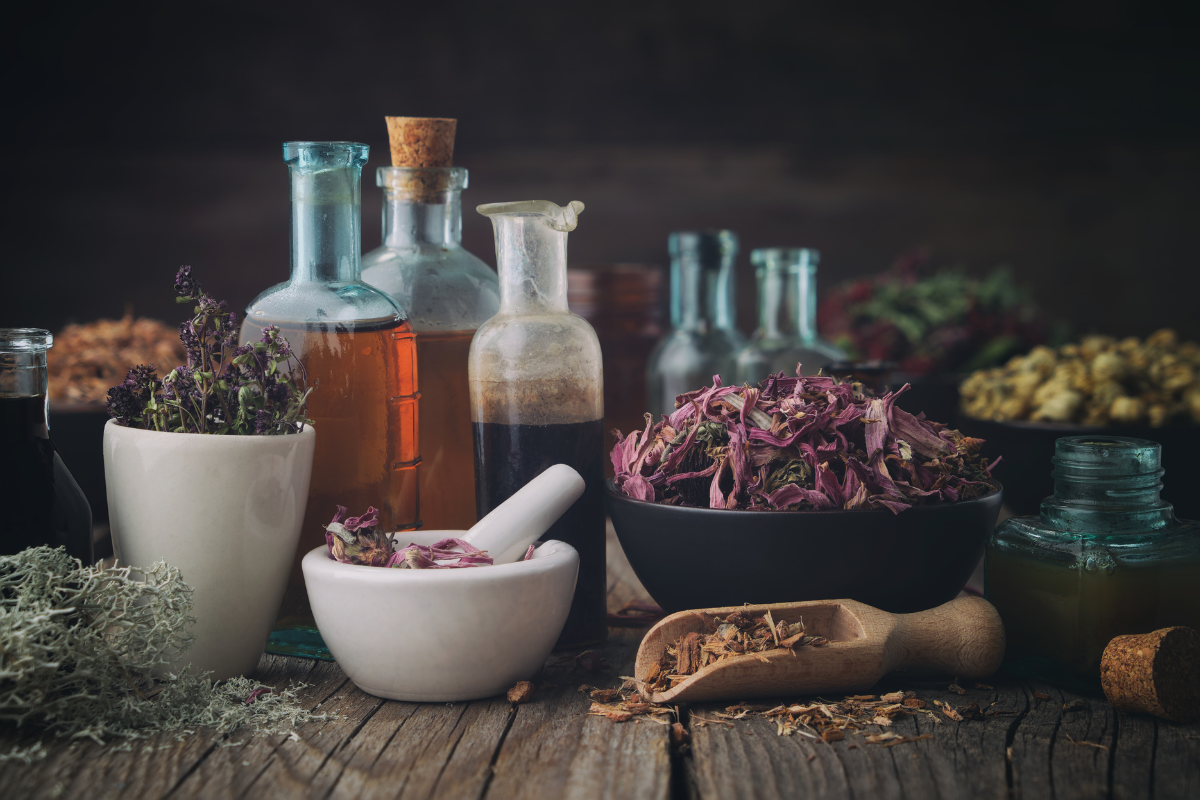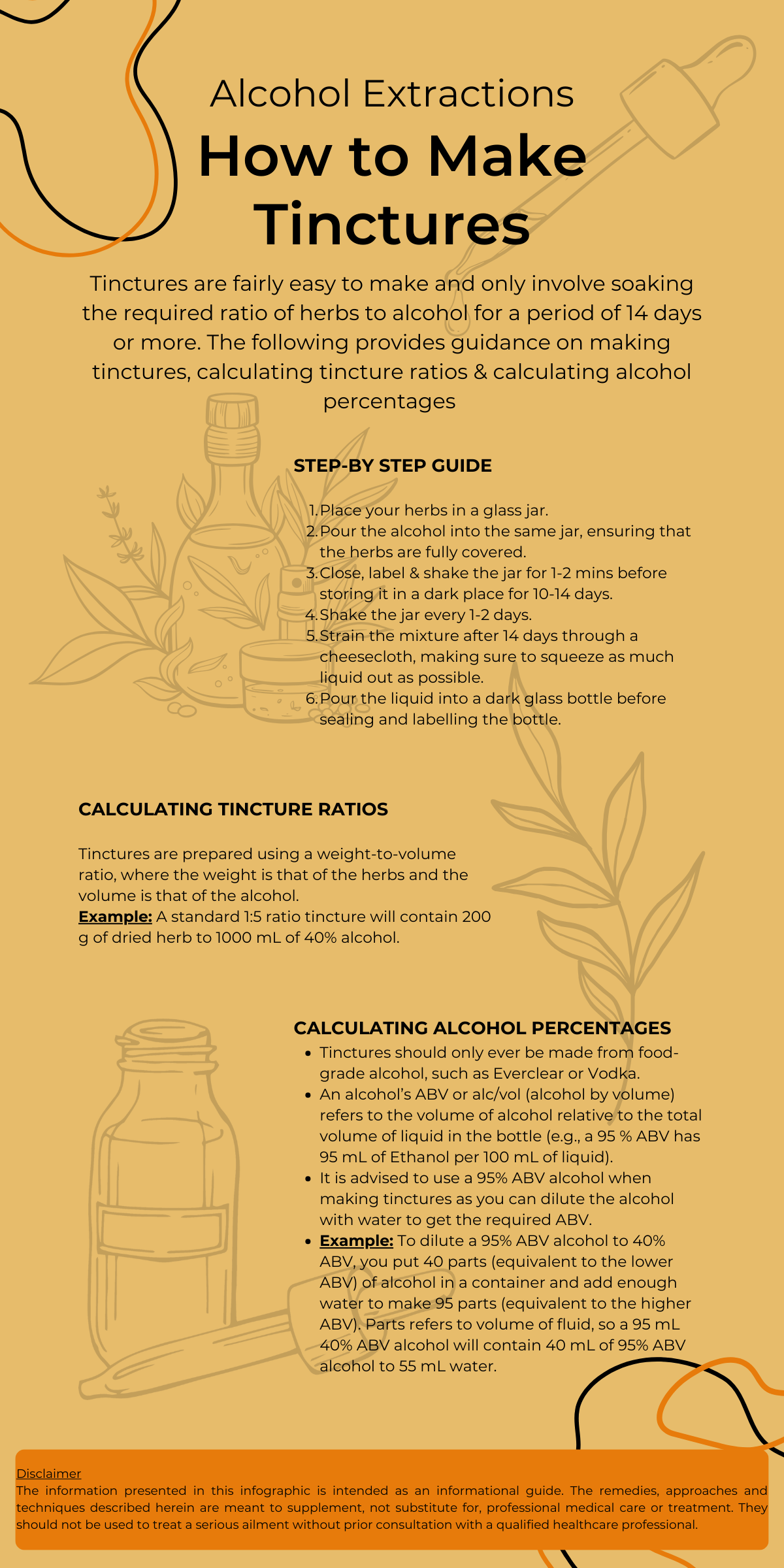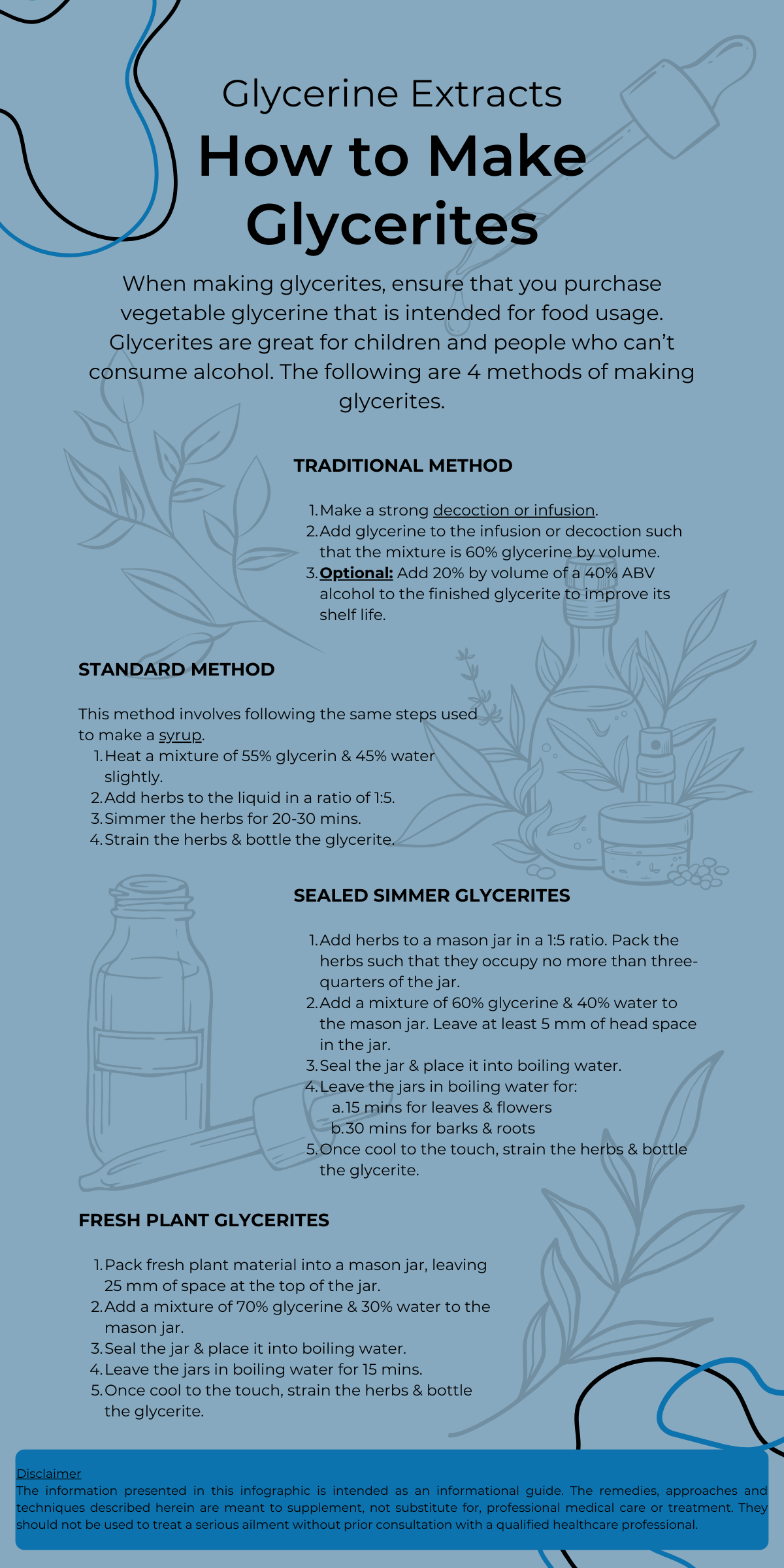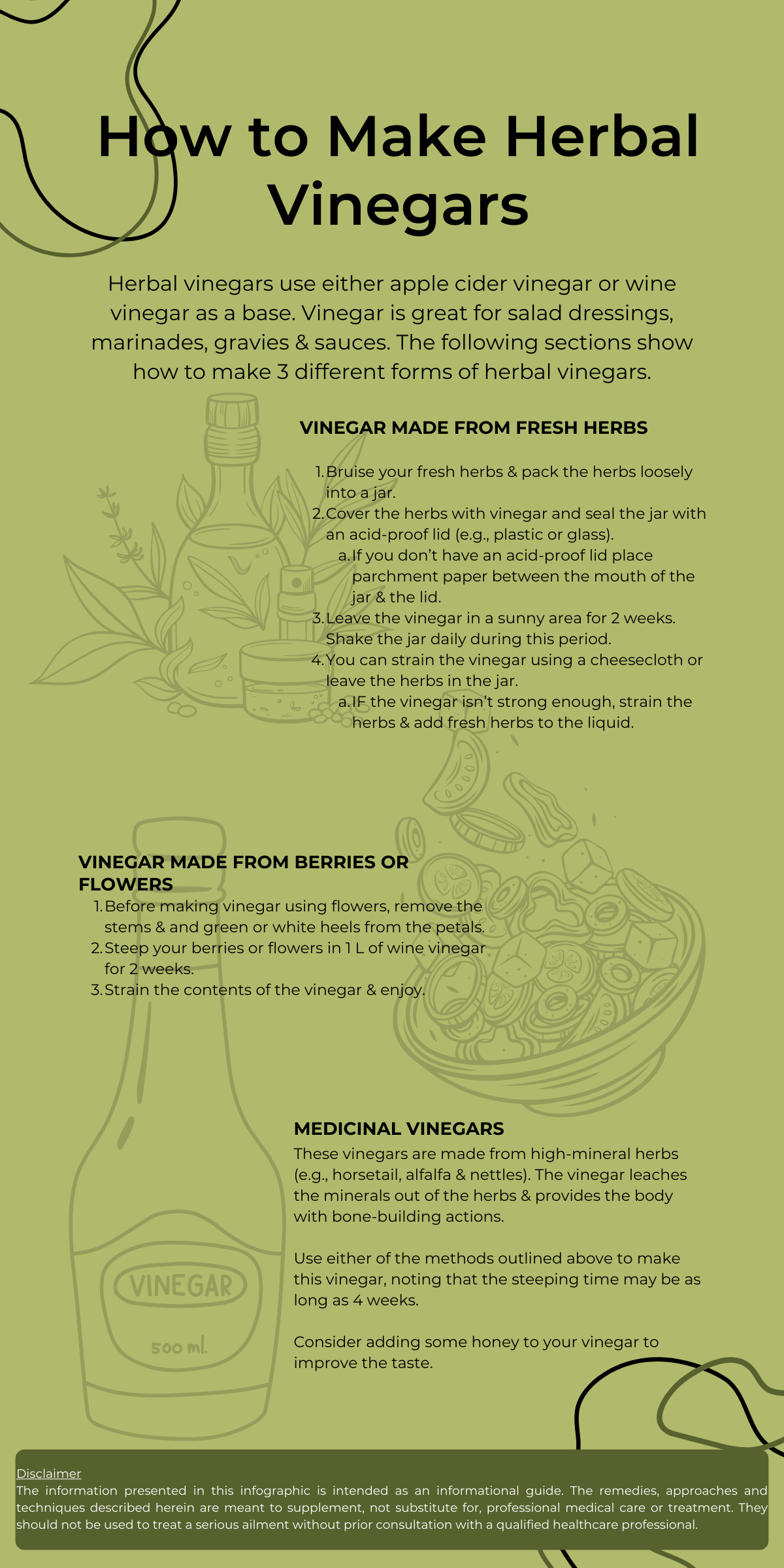
How to make Tinctures, Glycerites & Herbal Vinegars
BY THEASHEN MOODLEY
Key Definitions
Constituents - a component part of something.
Introduction
Water-based extraction methods such as infusions, decoctions and syrups are quick, cheap and simple to make but they come at the expense of shorter shelf lives. Alcohol, glycerine and Vinegar extractions have longer shelf lives when compared to water-based extraction methods and involve a bit more patience and cost to make. The sections below outline how to make alcohol extractions (tinctures), glycerine extractions (glycerites) and herbal vinegar.
Sterilising your Utensils
Before attempting any of the methods outlined below ensure that your utensils are properly sterilised. This ensures that your preparations will get the longest shelf-life possible and will maintain hygiene. A quick way to sterilise your equipment is to follow the same methods used to sterilise baby bottles. After your utensils have sat in sterilising solution for at least 30 minutes, dry them in a hot oven or wash them in a dishwasher.
Tinctures
Alcohol extractions (tinctures) have been dated as far back as 7000 BCE, where clay pots once contained fermented mixtures of honey, hawthorn berries and grapes. The preservative actions of alcohol ensure that herbal tinctures maintain long shelf-lives while retaining efficacy. The most common way of making an alcohol-based tincture is to soak dried herbs in an alcohol and water solution for 14 days or more. To get the greatest shelf-life out of your tincture store it in an amber or dark-coloured bottle away from light.

Glycerites
Glycerine extraction (glycerites) is underutilised in the world of phytotherapy, which may be due to the false association of glycerine with sugar. The sweet taste of glycerine is attributed to the tri-atomic alcohol, which does not affect blood sugar levels. The sweetness of glycerine is perfect for masking the taste of bitter or unpleasant-tasting herbs. Unlike alcohol, glycerine requires heat for the extraction process and is unsuitable for heat-sensitive herbs. When stored in a cool, dark place or in the fridge, glycerites can last up to 3 years.

Herbal Vinegar
Vinegar has been used for thousands of years as condiments, relishes and dressings. They are a great way to aid your body in digesting heavy and high-protein meals. The sad reality about most vinegars today is that they don’t contain the “mother” material, which is a cloudy material that contains beneficial bacteria and enzymes. Herbal vinegars are a great way to extract alkaloids, preserve herbs, season foods and retain “mother” material.

Works Cited
- Chevallier, A., 2016. Encyclopedia of Herbal Medicine. 3rd ed. New York: DK Publishing.
- Easley, T. & Horne, S., 2016. The Modern Herbal Dispensatory: A Medicine-Making Guide. California: North Atlantic Books.
Related Nutraceutical Blog Posts
-

How to make Tinctures, Glycerites & Herbal Vine...
Alcohol, glycerine and Vinegar extractions have longer shelf lives when compared to water-based extraction methods and involve a bit more patience and cost to make.
How to make Tinctures, Glycerites & Herbal Vine...
Alcohol, glycerine and Vinegar extractions have longer shelf lives when compared to water-based extraction methods and involve a bit more patience and cost to make.
-

How to Make Infusions, Decoctions & Syrups
The easiest way to get immersed into the world of phytotherapy is to make your own medicine.
How to Make Infusions, Decoctions & Syrups
The easiest way to get immersed into the world of phytotherapy is to make your own medicine.
-

How to Harvest, Dry & Use Plants
Harvesting and processing plant materials is the first step into the world of phytotherapy as it empowers the individual on what they put into their body.
How to Harvest, Dry & Use Plants
Harvesting and processing plant materials is the first step into the world of phytotherapy as it empowers the individual on what they put into their body.




